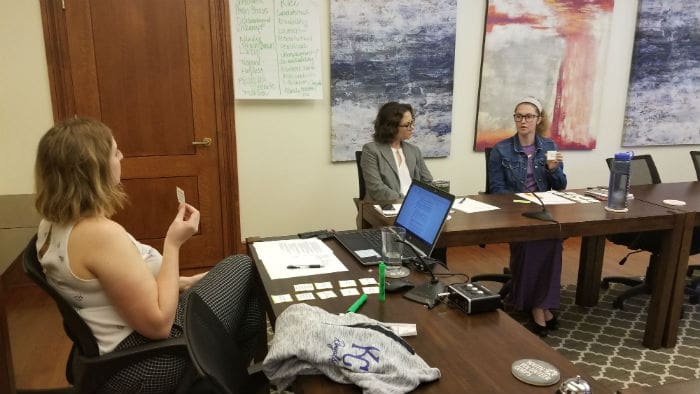Boosting Your Resume with Volunteering


Many people don’t think of volunteering as something to talk about with colleges or employers, but showing up to volunteer in your community tells a lot about your personality and can boost your resume! First, volunteering demonstrates a large amount of leadership skills. It tells people you are willing to step up and help out with challenges you see. On projects, nothing will get accomplished if there are no leaders offering ideas and helping to guide people towards a solution. This doesn’t mean you have to be the most vocal on a project. Leaders will often delegate tasks in order to see that a project is completed on time and correctly. The most important thing I learned about leadership in college is that leaders are nothing without a strong team.
This leads me to the next thing volunteering demonstrates on a resume. Volunteering is often a team effort and shows you can be successful as a member of a team. There are many benefits to this team-based approach. With that boost from your fellow volunteers, time passes by faster and work gets done with ease. Working on a team also means you can get along with other people and are willing to compromise when issues come up. This is not to say that volunteering on your own is not possible; however, many projects are a team-based approach to meeting community needs.
Adding volunteering to your resume also shows great time management skills, as you set your priorities in helping the community instead of playing another round of Fortnite or binge watching your favorite show on Netflix. People will appreciate that you took the time to serve meals at a homeless shelter for a couple of hours on a Saturday morning or built dog houses for your local Humane Society. Time management will set you up for success in college when you have a very flexible schedule and go to class only a couple of hours a day. This skill is a crucial skill for becoming an effective employee.
In addition, volunteering builds adaptability. For a multitude of reasons, volunteer projects are not always predictable. For example, it could be raining on the day you were going to do landscaping or you don’t have the right supplies to paint your city’s mural. Situations like these lead to problem solving. You have to figure out how to make the day a success, even when missing resources and responding to things outside your control – like the weather. You may have to think outside of the box or be creative. These are definitely skills people want to see on your resume. The ability to problem solve and adapt can be transferred to all situations in life.

It’s also very important to include any service awards or distinction you received from volunteering. Did you just get your 100 hours of service or were you honored as YVC volunteer of the year? Put it on your resume! It shows that other people recognize the work you are doing and want to celebrate you. This one can be the hardest sometimes because usually volunteering is about doing good things even when no one is rewarding or paying you.
“Often we set out to make a difference in the lives of others only to discover we have made a difference in our own.” —Ellie Braun-Haley
We may start a volunteer project to help the seniors in our communities or to improve the environment by helping clean an ecosystem, and we end up learning more from it than we ever thought possible. Don’t discount the value of a project just because you didn’t get paid to do it. I encourage you to volunteer and to include the skills you learn while doing service on your resume.

Hello everyone! My name is Kaylee, and I’m a part of the YVC Headquarters’ team! I just graduated from Wichita State University last year, and with graduation came change in every direction. Going to classes, writing papers, and studying for exams have been my normal for the past 13 years, and often times it felt like school was all I had time to concentrate on. I remember in high school my life consisted of two things: school and extracurricular activities. When I was applying for colleges and going to scholarship competitions, I started noticing a common theme: people wanted to know what skills I had gained from jobs, internships, or high school classes. I always felt behind because I didn’t have any jobs in high school. I focused on my academics and didn’t realize until college that I had missed talking about a key element in my life: volunteering in my community!
Categories
- Reflection (6)
- YVC Alum (4)
- Guest post (7)
- International Youth Advisory Board (4)
- Youth Volunteer Post (5)
- Youth Volunteerism (57)
- Youth Volunteers in Action (5)
- Growing the YVC Network (1)
- Project Idea (1)
- Project Tips (1)
- General (14)